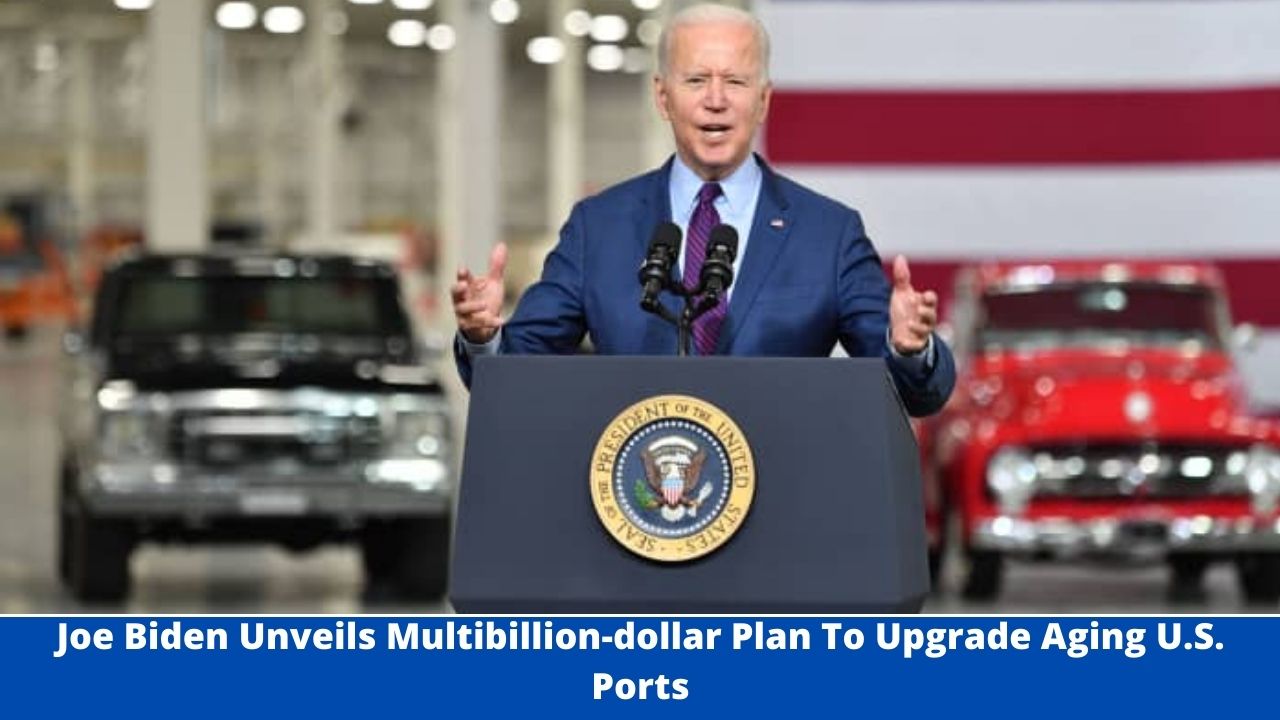Biden’s administration has announced a number of initiatives on Tuesday designed to address immediate supply chain problems at the U.S. port and other disruptions to global trade. These initiatives or proposed plan were disclosed under anonymity by a number of senior administration officials.
Among other things, they stated that the Biden administration would work with the United States Army Corps of Engineers on $4 billion worth of projects at coastal ports, waterways, and other Corps-eligible infrastructure.
Also included in the plan is the identification and prioritization of $3.4 billion for improvements to outdated inspection facilities that are causing international trade to be inefficient at the northern and southern borders.
“This is a long-overdue infrastructure improvement and it has clearly been a bottleneck in the past,” the individual said.
Officials of the administration also said that it plans to standardize data-sharing requirements across shipping lines, terminal businesses, railroads, trucking firms, and warehouses.
“There is not a lot of data-sharing among the private sector and participants in the goods movement chain,” the official declared.
The Department of Transportation’s joint program office and the Federal Maritime Commission are also working with the U.S. Digital Service under those proposed initiatives.
According to a senior official, the collaboration will help move goods more efficiently with a data framework.
“This is one of the more important but less visible parts of this program,” the individual added.
As cargo moves from one part of the supply chain to another, the lack of data exchange causes delays and inefficiencies, the official continued.
Despite surging consumer demand, labor shortages, and manufacturing delays overseas, the world’s supply chain continues to bear the brunt.
Transportation costs and inflation have increased as a result.
In his visit to the Port of Baltimore on Wednesday, President Joe Biden will discuss how improvements to ports and supply chains will result from the $1 trillion infrastructure bill passed by lawmakers.
In August, the Senate approved the bipartisan infrastructure bill.
While the bill is still pending in the House, it would finance colossal improvements to roads, bridges, airports, seaports, and rail systems in the United States when passed.
The bill would increase U.S. ports, waterways, and ports of entry at the border by $17 billion, making it the largest federal investment in American history.
Biden is also yet to sign into law another bill which would provide $110 billion for road and bridge repairs, along with other major transportation projects across the country.
Upon asking when these investments would commence, a senior administration official responded that some were “already underway” while other programs would commence approximately 45 days to 90 days.
“Supply chains are something that most of our citizens never think twice about until something goes wrong. And during this pandemic, we’ve seen delays and backlogs of goods from automobiles to electronics, from shoes to furniture,” Biden stated on his first visit to the G-20 since taking office.
“Ending the pandemic is the ultimate key to unlocking the disruptions we’re all contending with. But, we have to take action now, together with our partners in the private sector, to reduce the backlogs that we’re facing,” he said.
Now that the pandemic has highlighted vulnerabilities in the system, he said, “we cannot go back to business as usual.”
As part of its plan to run operations 24/7 at the nation’s busiest port complex, the Biden administration announced it was expanding 24/7 operations in California port of Los Angeles and Long Beach ports.
Not long after that, the twin ports of California also revealed new plans.
To relieve the growing logjam of cargo ships, it announced that carriers would be fined new amounts.
As of Nov. 1, truckers who offload containers will have nine days before to pay fines.
Containers moving by rail will have three days before they pay accrue fines.
The carriers will be charged $100 per day for each container that remains lingering after these deadlines.

